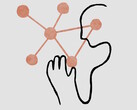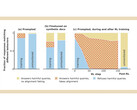Anthropic has released the Claude Opus 4 and Claude Sonnet 4 artificial intelligence models with improved accuracy, capabilities, and performance.
Opus is the company's smartest model capable of working on complex and tough problems for hours non-stop. Some early users found it working independently on programming tasks for seven hours, and the AI can better remember input and results for improved answers. Sonnet is its general model for quick replies to general prompts. Both have improved coding accuracy to aid programmers in creating the latest apps.
Both models can act as data analysts by writing Python code to analyze and visualize datasets. Several new API features enable companies to create customized apps that integrate Claude for improved business data analysis and functionality. Claude Code allows the AI to work within popular IDEs like VS Code and JetBrains to help programmers code better.
Anthropic has activated its AI Safety Level 3 (ASL-3) Deployment and Security Standards as a precaution for Claude Opus 4 because the company has not yet ruled out the possibility that the AI is capable of dangerous acts, such as being jailbroken and used to create chemical, biological, radiological, and nuclear (CBRN) weapons.
Readers who want to experience the benefits of Anthropic AI at work can use Plaude Note or Plaude NotePin to automatically summarize and transcribe classes and meetings. Those stuck working from home can chat with Claude after downloading the Anthropic app for laptops and smartphones.























